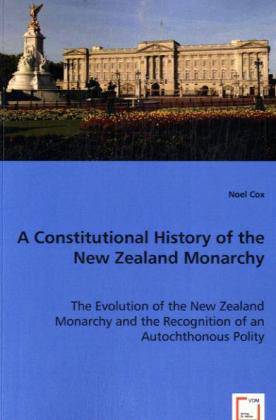
- Afhalen na 1 uur in een winkel met voorraad
- Gratis thuislevering in België vanaf € 30
- Ruim aanbod met 7 miljoen producten
- Afhalen na 1 uur in een winkel met voorraad
- Gratis thuislevering in België vanaf € 30
- Ruim aanbod met 7 miljoen producten
Zoeken
A Constitutional History of the New Zealand Monarchy
The Evolution of the New Zealand Monarchy and the Recognition of an Autochthonous Polity
Noel Cox
Paperback | Engels
€ 115,95
+ 231 punten
Omschrijving
The twentieth century saw the evolution of the former British Empire into a collection of independent countries. Many of these retain the Sovereign of the United Kingdom as their Queen. Using New Zealand as an example, this book examines the development of the Crown as a distinct constitutional entity. The concept of the Crown has often been of greater importance than the person of the Sovereign, or that of the Governor-General. The existence of the Crown has also contributed to, rather than impeded, the independence of New Zealand, and other realms, through the division of imperial prerogative powers. The very physical absence of the Sovereign, and the all-pervading nature of the legal concept of the Crown, have also contributed to development of that institution as a truly national organ of government. In New Zealand in particular this has been encouraged by conceptual confusion over the symbolism and identity of the Crown. The book is of value to students and researchers in constitutional law and history, indigenous rights and post-colonialism, and comparative politics.
Specificaties
Betrokkenen
- Auteur(s):
- Uitgeverij:
Inhoud
- Aantal bladzijden:
- 332
- Taal:
- Engels
Eigenschappen
- Productcode (EAN):
- 9783639008777
- Verschijningsdatum:
- 24/04/2008
- Uitvoering:
- Paperback
- Formaat:
- Trade paperback (VS)
- Afmetingen:
- 152 mm x 229 mm
- Gewicht:
- 444 g

Alleen bij Standaard Boekhandel
+ 231 punten op je klantenkaart van Standaard Boekhandel
Beoordelingen
We publiceren alleen reviews die voldoen aan de voorwaarden voor reviews. Bekijk onze voorwaarden voor reviews.







